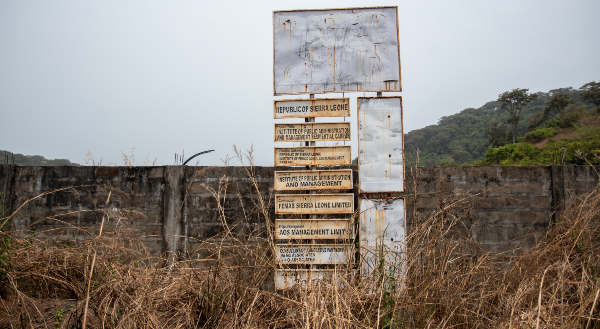The scandal surrounding the University of Sierra Leone (USL) and its botched $4.5 million deal with the dubious Nigerian developer, Femab Properties, is a stark reminder of the pervasive corruption and mismanagement that continues to plague public institutions in Sierra Leone.
This debacle, where red flags were ignored and due diligence was abandoned, underscores the lack of accountability at the highest levels of government and the alarming ineffectiveness of the Anti-Corruption Commission (ACC).
The deal, which was supposed to lead to the construction of a new campus for the Institute of Public Administration and Management (IPAM) at Bureh Town, has instead become a case study in how not to manage public funds. The fact that $4.5 million—an amount equivalent to two years’ worth of tuition fees for IPAM’s entire student body—was handed over to a company with no credible track record is shocking. This is money that could have been used to improve the dire educational infrastructure or to support the thousands of students who struggle to afford their education. Instead, it has disappeared into the pockets of a developer with a history of failed projects and legal troubles in Nigeria.
One cannot help but question the competence and integrity of the officials involved in this deal. Why was Femab, a company with no proven capacity to deliver on such a large-scale project, selected in the first place? According to the article, a simple internet search would have revealed that Femab has never completed any of its real estate projects and that it is entangled in numerous lawsuits in Nigeria. Africa Confidential points out that the so-called subsidiaries it boasts of are nothing more than empty shells, with no visible operations or completed projects. This raises serious concerns about the extent of due diligence carried out—or rather, the complete lack thereof—before such a significant sum of public money was committed.
Moreover, the silence from the ACC is deafening. This scandal, which should have prompted an immediate and thorough investigation, has instead been met with inaction. The ACC appears more interested in protecting government officials and pursuing low-level cases than in tackling the big fish responsible for this massive loss of public funds. Had Africa Confidential not brought this scandal to light, it is unlikely the public would ever have known about it. Even now, there has been no public acknowledgment from the ACC, no press release, no commitment to hold those responsible accountable. This is an institution that is supposed to safeguard public interest, yet it seems to be more concerned with maintaining the status quo.
The failure of this project is not just a financial loss; it is a betrayal of the public trust. The students and faculty of IPAM, who were promised a state-of-the-art campus, are left with nothing but a barren piece of land. Meanwhile, the officials who greenlighted this deal and ignored all the warning signs continue to evade accountability. The entire saga highlights the urgent need for reform in how public-private partnerships are managed in Sierra Leone. Without transparency, accountability, and strict oversight, such partnerships will continue to be fertile ground for corruption and mismanagement.
It is time for the government to take decisive action. An official inquiry must be launched to uncover the full extent of what went wrong and to ensure that those responsible are held accountable. The ACC must step up and fulfil its mandate to combat corruption at all levels, not just chase after minnows while the sharks swim free. And the public must demand better from those who are supposed to serve them. The loss of $4.5 million is not just a financial scandal; it is a moral failure, and it must not be allowed to be swept under the rug.
Source: Sierra Eye











